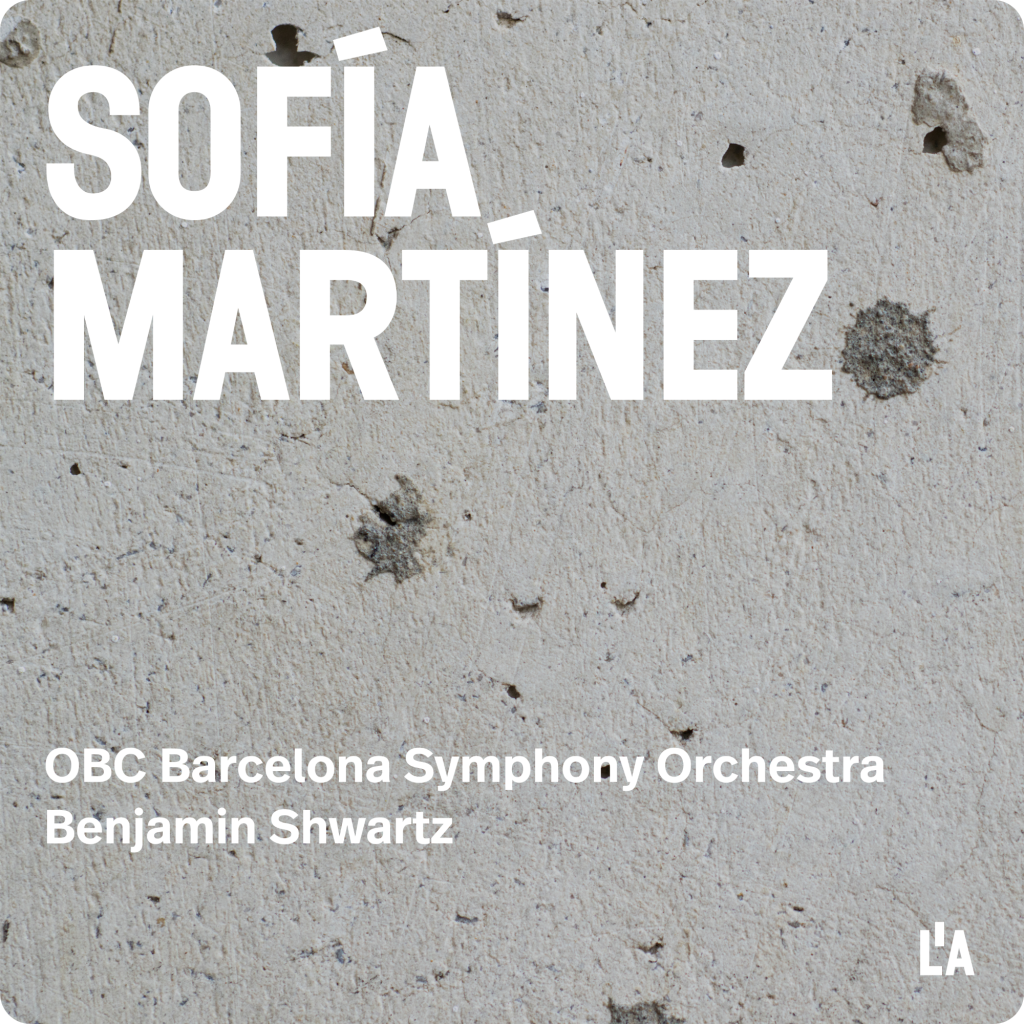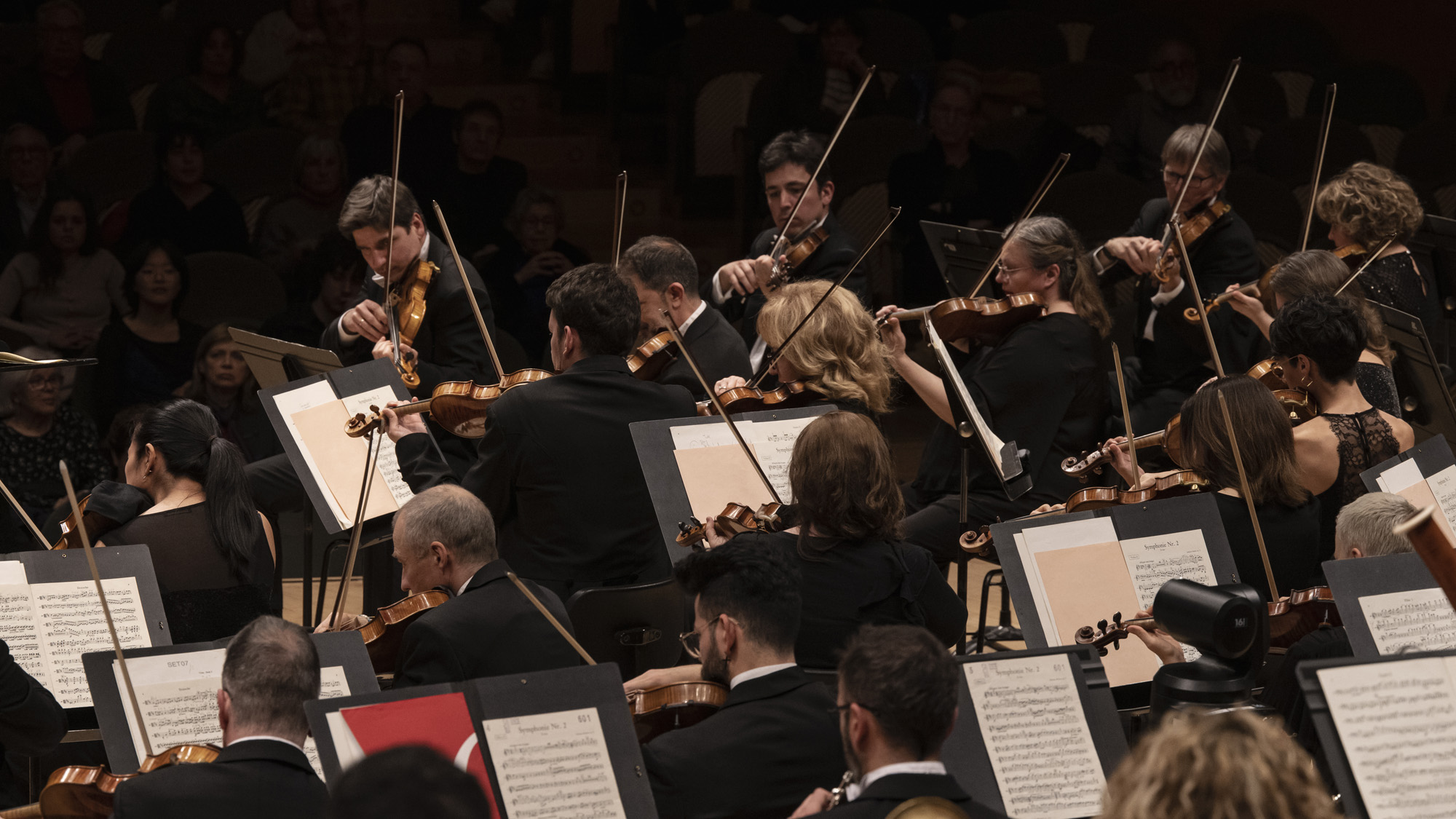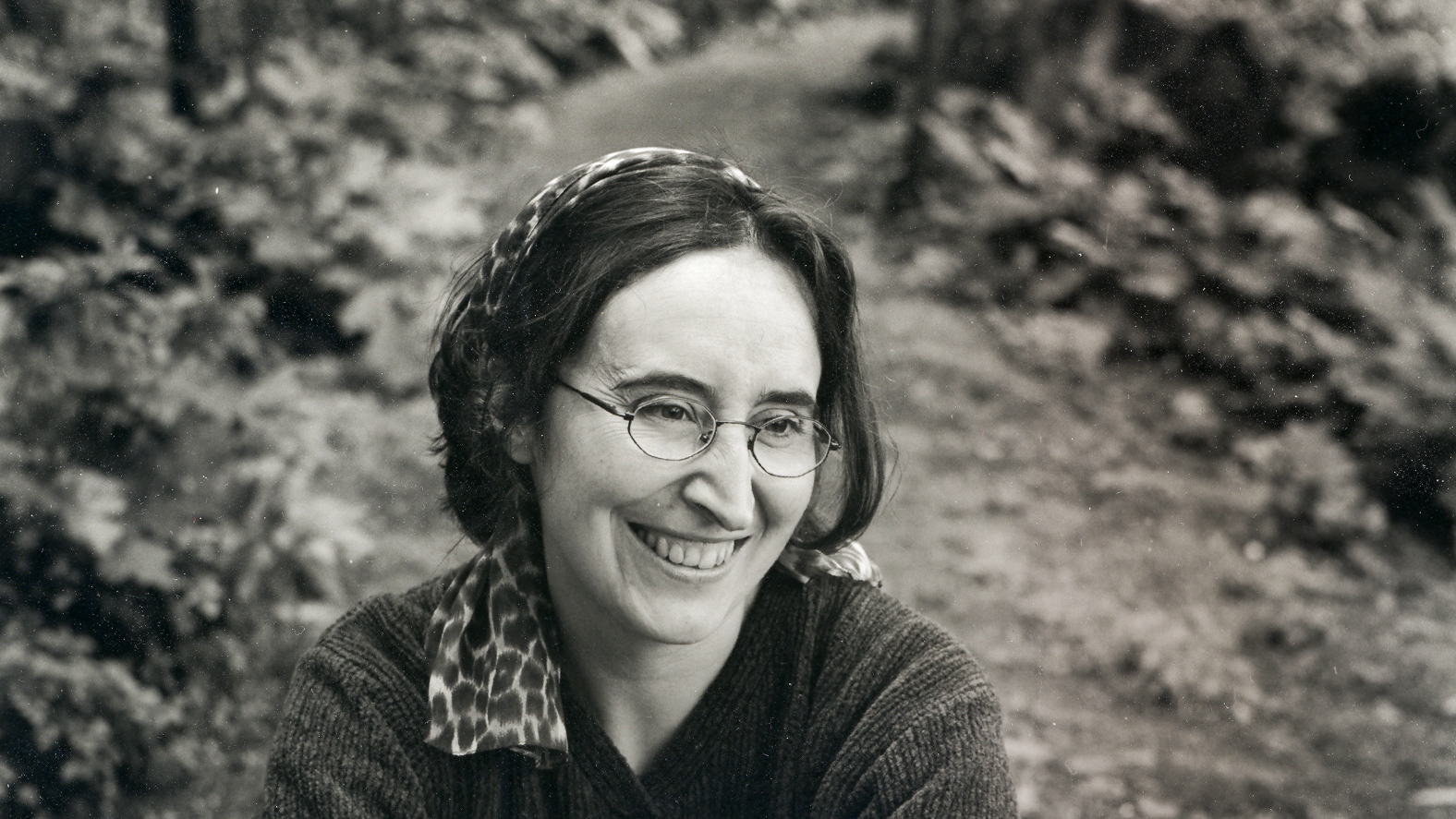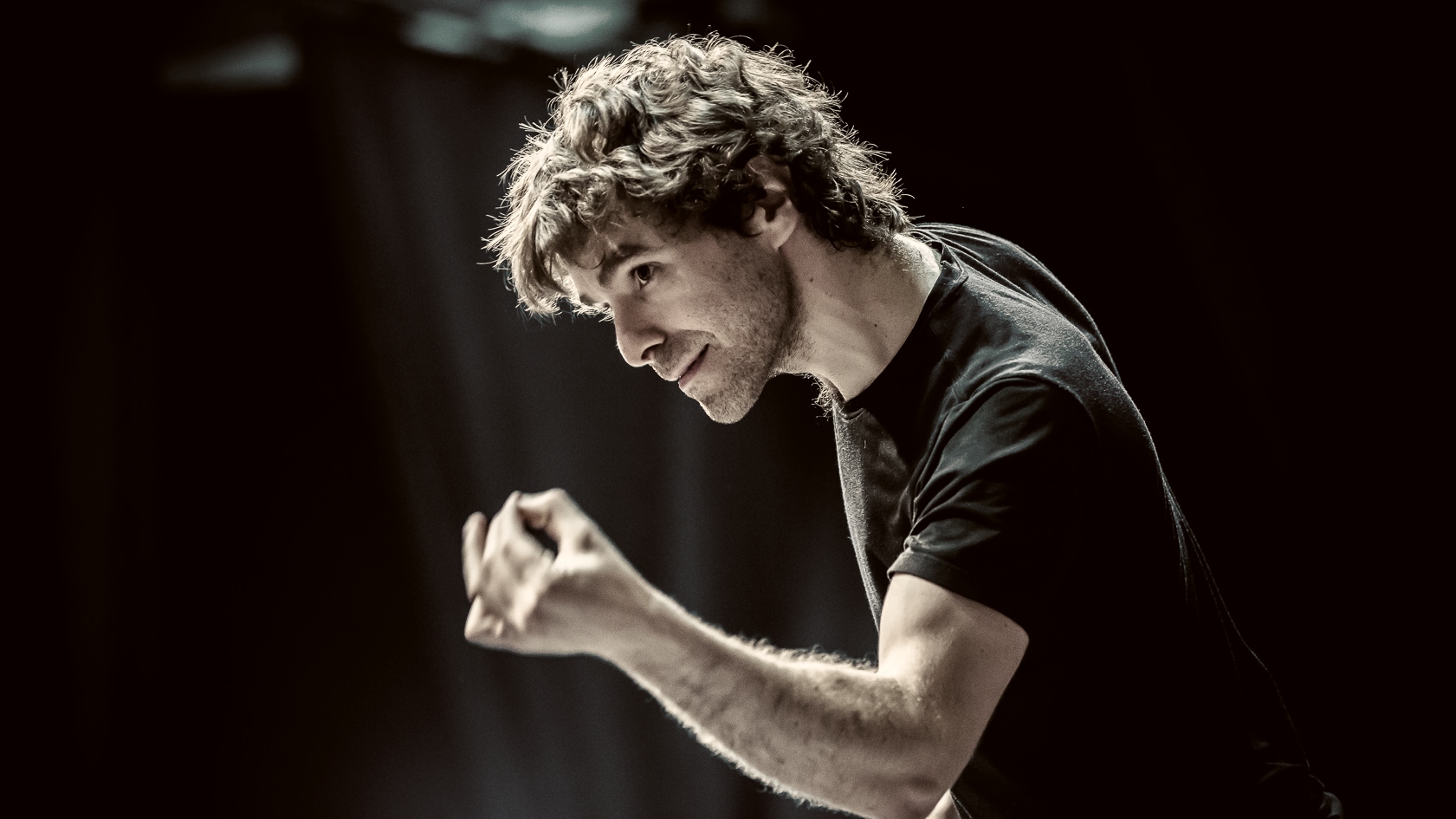
Homenaje a Ligeti
Liner notes by Ismael G. Cabral
No lover of the arts (in their plural representations) can hide the somewhat presumptuous pleasure of feeling – seemingly for oneself – a connection with a creator’s oeuvre whose work is fodder and nourishment for the praise and admiration of a select few. Let this preamble be a tribute to the person and – clearly even more so – the catalogue of composer Sofía Martínez (1965), a catalogue that is quite reduced, staggered over time and savoured. Nor is her presence on the Internet significantly prolific. It is plausible that music like hers requires neither an excessive song and dance nor digital proliferation. In her biographical note, published on her concise and monastic web page, we read: «Her investigations lead her to explore quarter tones and deliciously slow glissandos. Like in quantum physics, the uncertainty principle, where the traditional reference points for both notes and time are lost. It is not about finding the precision of the note, but its most secret part, moving towards an inner path.»
LA-OBC-005 | RELEASE DATE: 8 DECEMBER 2023

HOMENAJE A LIGETI
2014 – 2019
The two pages that the Barcelona Symphony Orchestra have recorded are part of “Homage to Ligeti” whose creations, whirled together in recognition of the composer of “Ramifications”, can be performed together or separately. “I wanted to pay homage to this great musician who has influenced so many of today’s composers, including myself of course, although this does not necessarily mean that I have used his compositional techniques,” says Martínez.
If in the orchestral works of Giacinto Scelsi we could set sail and float adrift in our listening, without apparent directionality or, conversely, become entrenched in a dead-end landscape, in “Mañana” (2014) the Basque composer proceeds quite similarly. Of course, we will also think of the Ligeti of the great polyphonic densities. “I am interested in working with ascending and descending glissandos because, with them, the notions of pitch and time disappear, as well as their directionality (…) Glissandos create an uncertainty when listening, as we cannot find precision in the note and this reveals its most secret part to us,” reflects the Basque composer with respect to this score. Its execution, however, demands the opposite: the instrumentalists’ utmost training and dedication to an idea that the conductor must understand fully and perfectly beforehand. It is in the final section where the Martínez’s own pen can be most fully recognised and becomes most noticeable, when the cascade of glissandos enters into ‘dialectic’ – in confrontation as we see it – with several rapid chords that abruptly conclude the discourse. “Mañana” is inspired by the homonymous text by Pascal Fourvel: «Tomorrow: Is it once again the time when the abandoned sketch out a world? And the smile of a feeling hovers in the air. The purple of the dawns presages freedom, when time belongs to the Being.»
In the composition “Utopia” (2019), Sofía Martínez needs fewer than six minutes to trace what seems almost like an impression, a sketch or stain, also based on poetic lines by Fourvel: «There the blue of the swallows’ song is venerated, as the oblivion of all sense.» The beginning, in the strings, has something of a Baltic sonorous imprint, of icy yet serene music, even embraced by the calm that it transmits to us. Barely two minutes after feeling strangely rocked by this ambience, by this unambiguous melody, a glissando rarefies the climate, provoking a contrast that transports us aurally to another place. We will remain there, while we witness a string that cracks, a yarn that frays, while the harmonic depth grows and the pitch of the wind instruments soar to new heights. “After the climax everything turns into a chorus of birds.” There is great expression, rich in subtleties, which suggests a calm listening of both works, here in the form of a diptych. We also appreciate Martínez’s desire to claim her authorship by humbly acknowledging masters from the past, Ligeti naturally but also, if only introspectively, others such as Luis de Pablo, Cristóbal Halffter and Luigi Nono, from whom the present composer may have received teachings that have been interwoven in this “inner path” that constitutes her own personal search.

Sofía Martínez
Sofía Martínez (Vitoria, 1965) studied the piano under Manuel Carra at the Royal Music Conservatory in Madrid, as well as composition under Carmelo Bernaola at the J. Guridi Music School in Vitoria. In 1992 she moved to Paris, where she took composition courses under Emmanuel Nunes, as well as music analysis, orchestration and composition courses under Marc-André Dalbavie, Alain Louvier and Betsy Jolas at the Paris Conservatory, and Orchestra Conducting at the École Nationale de Musique et de Danse d’Evry with Nicolas Brochot.
She has taken part in courses and symposia with Luis de Pablo, Luigi Nono, Pierre Boulez and Cristóbal Halffter. She has been awarded the “Eresbil” prize for composition, and has also received a special mention for her work “Apolo y Dafne” (Apollo and Daphne) in the composition competition held by the Col·legi d’Espanya and INAEM. She has had works commissioned by the CDMC, INAEM, the French Ministry of Culture, the Basque Government and Quinzena Musical.
She has also made arrangements for the Olaeta Ballets. Between 1996 and 2004 she was teaching at the École Nationale de Musique de Sevran, the École de Musique de Parmain and the Paris Conservatory XVI. In 2007 she was teaching composition at the Conservatory of Music of the Canary Islands.

OBC BARCELONA SYMPHONY ORCHESTRA
Benjamin Shwartz
FIRST VIOLINS Vlad Stanculeasa, concertino / Maria José Aznar / Walter Ebenberger / Ana Galán / Natalia Mediavilla / Katia Novell / Pilar Pérez / Jordi Salicrú | SECOND VIOLINS Emil Bolozan, assistant / Maria José Balaguer / Jana Brauninger / Patricia Bronisz / Clàudia Farrés / Mireia Llorens / Robert Tomàs VIOLAS Duccio Beluffi, guest soloist / Josephine Fitzpatrick, assistant / Franck Heudiard / Michel Millet / Jennifer Stahl CELLOS Jose Mor, soloist / Vincent Ellegiers / Marc Galobardes / Jean Baptiste Texier | DOUBLE BASS Christoph Rahn, soloist / Matthew Nelson | FLUTES Francisco López, soloist / Beatriz Cambrils / Ester Esteban | OBOES Disa English, soloist / José Juan Pardo / Molly Judson, English horn | CLARINETS Larry Passin, soloist / Francesc Navarro / Josep Fuster, assistant and clarinet in Eb / Alfons Reverté, bass clarinet | FAGOTS Silvia Coricelli, soloist/ Noah Cantú / Slawomir Krysmalski, contrabassoon | TRUMPETS Juan Manuel Gómez, soloist / David Bonet / Juan Conrado García, assistant | TRUMPETS Mireia Farrés, soloist / Adrián Moscardó / Raúl Calvo | TROMBONES Eusebio Sáez, soloist / Vicent Pérez / Raúl García, bass trombone | TIMPANI Marc Pino | PERCUSSION Juan Francisco Ruiz / Ignasi Vila / Miquel Angel Martínez | ARPA Magdalena Barrera, soloist | LIBRARIAN Begoña Pérez | PLANNING DIRECTOR: Joan Cortés
PHOTOS May Zircus | SOUND ASSISTANT Toni Vila | MUSIC PRODUCTION AND SOUND Sylvain Cadars | GRAPHIC DESIGN Lorena Alonso Noblom | EDITORIAL DIRECTION Santi Barguñó
Album recorded on January 26 and 27, 2021 in Sala 1 Pau Casals, L’Auditori de Barcelona.
Supported by

